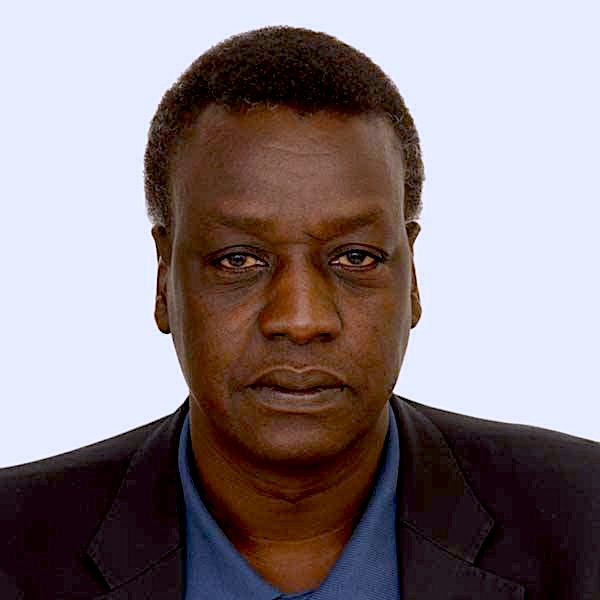Dr. Luka Biong Deng, South Sudan’s renowned politician and academician.
An opinion article authored by the renowned South Sudan Politician Dr. Luka Biong Deng addresses strategic questions on the decision of the unity government to extend the transitional period and postpone the elections to December 2026.
It is clear now that the elections in December 2024 will not be conducted and will be delayed by 24 months to December 2026.
While the Council of Ministers of the RTGoNU unanimously endorsed, as expected, the decision of the Presidency to postpone elections until December 2026 and extend the transitional period of the R-ARCSS to February 2027, the Revitalized Joint Monitoring and Evaluation Commission (RJMEC), interestingly, did not unanimously endorse the extension of the transitional period of the R-ARCSS.
Out of the 42 members of the RJMEC who attended the meeting, 34 members (81%) consented to the extension, while 7 members (17%) did not consent, and 1 member (2%) did not vote.
Although the decision to extend the R-ARCSS by 24 months has been endorsed by more than the required two-thirds of the members of the RJMEC, the descending opinion of 19% of members of the RJMEC is sizeable and indicative of dissatisfaction with the extension and probably reflects the general public opinion.
This decision will now be presented to the National Legislature for final endorsement through the standard procedures of amending the constitution.
It remains to be seen the way the members of the National Legislature will be informed by the voices of the citizens they represent in the process of deliberating on the decision to extend the transitional period and postponement of the general elections and whether they will adhere to the procedures for the amendment of the constitution as provided for in the Transitional Constitution, 2011 (amended).
Eventually, general elections in December 2024 will be delayed either through legal or illegal means in light of the looming legitimacy crisis on September 22. But this raises a fundamental question about what would happen if the parties to the R-ARCSS failed again in 2026 to meet the conditions for the conduct of elections in December 2026?
This hypothetical question projects a scenario that is likely to prevail in 2026 and the need to proactively prepare now. Given the current political mindset, the narrow transactional behavior of the political parties to the R-ARCSS, the politicized and paralyzed institutions related to elections, and structural defects in the R-ARCSS, the conditions for conducting elections in 2026 are unlikely to be met in 2026. With this assumption, here are two possible scenarios:
The first scenario is the parties to the R-ARCSS will amend the R-ARCSS and follow the same procedures to extend the R-ARCSS and postpone elections again for another 24 months to February 2029 and December 2028 respectively. This scenario is likely to prevail if no measures are provided for now to make the cost of non-implementation higher than the cost of the implementation of the R-ARCSS.
The second scenario is for the National Legislature to act now by providing clear mechanisms, procedures, and a roadmap for ending this cycle of endless extension if conditions for the conduct of elections are not met in 2026. In particular, the JMEC in its meeting on September 18, 2024, on the extension of the R-ARCSS made the following commitment in its Resolution 7 (c): “Commit to the people of South Sudan that this will be the last and final extension of the Transitional Period of the R-ARCSS …..”.
This commitment provides an opportunity to proactively plan now for its realization beyond the rhetoric of the conduct of elections as scheduled.
As this commitment will also be presented to the National Legislature, one option is for the National Legislature to agree now to amend the Elections Act 2012 (amended), particularly sections 16 (2) and 16 (4), to allow the President to dissolve the National Legislature, State Legislative Assemblies, the national government, state and administrative areas governments and to retain his position and appoint an inclusive caretaking technocratic government at national, state and administrative areas levels with the main task of the preparation of elections. The national caretaker cabinet is to be headed by the prime minister and the state caretaker government and caretaker administration of the administrative areas are to be headed by the state caretaker governor and caretaker chief administrator but not to hail from that state or administrative area similar to the experience in the pre-interim period of the 2005 Comprehensive Peace Agreement (CPA).
The members of the national, state, and administrative area caretaking governments will not contest elections. In appointing the caretaker governments or administrations, the President will consult political and community leaders of the states and administrative areas. Another option is to pursue the transitional arrangements recommended by the National Dialogue, but they are unlikely to be accepted by the parties to the R-ARCSS. However, most of the elements of these suggested transitional arrangements are incorporated in the first option.
Civil society organizations, think tanks, and academia have critical roles to play in advancing this national agenda of ending this vicious cycle of extension by providing informed views, analysis, and options to assist the members of the National Legislature in adopting a clear national roadmap for ending the extension of the R-ARCSS.
The opinion expressed by individuals does not necessarily represent or reflect the stance or position of The Golden Times | South Sudan.




